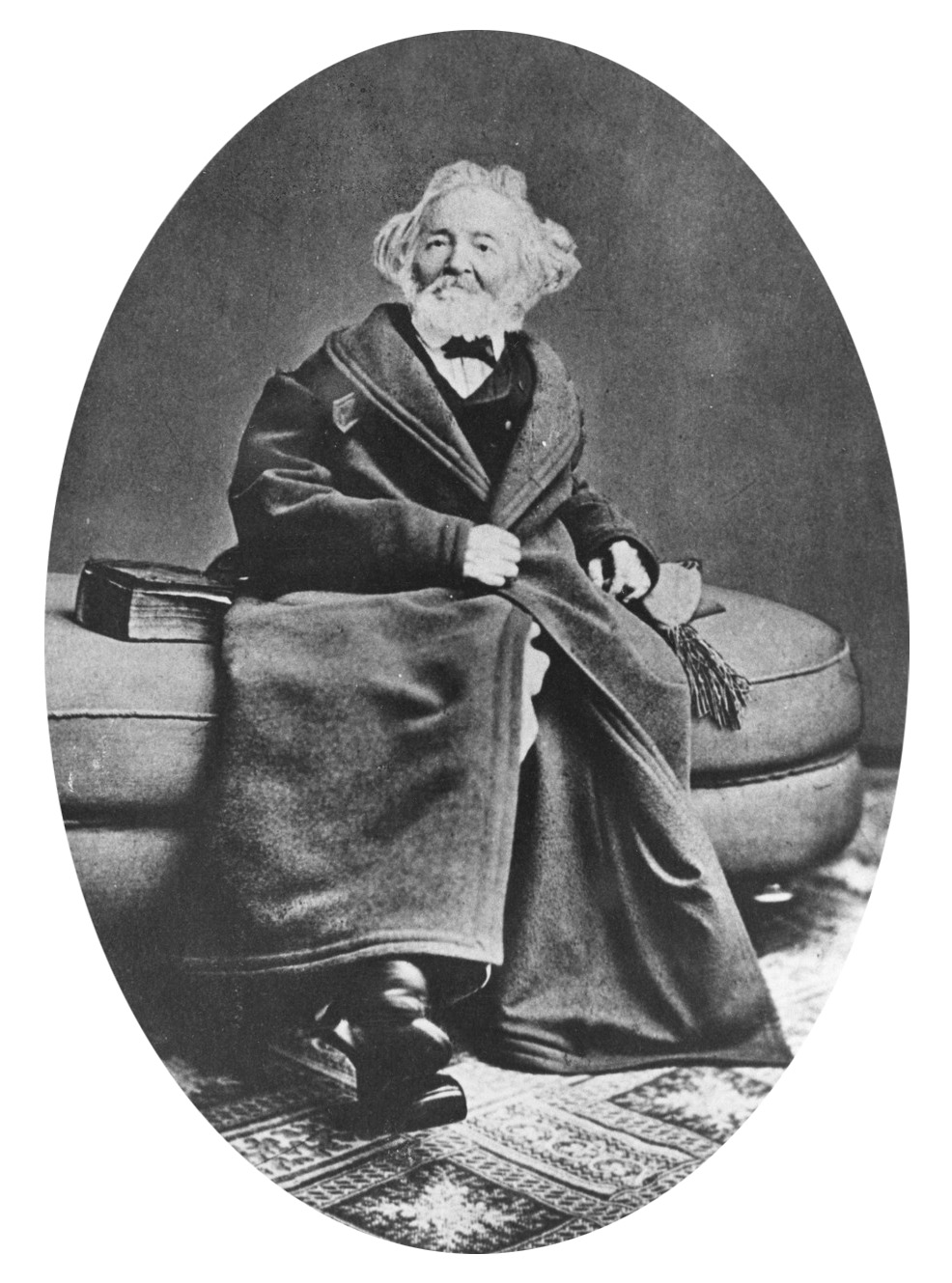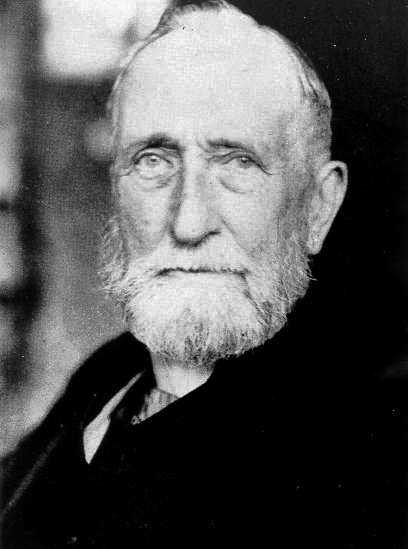|
Max Lenz
Max Albert Wilhelm Lenz (13 June 1850 – 6 April 1932) was a German historian. Biography Lenz was born to a Prussian and devoutly Lutheran notary in Greifswald, Province of Pomerania. After graduating from school, he studied history and classical philology under Heinrich von Sybel for three semesters in Bonn. He served in the 1870-1871 Franco-Prussian War and was wounded in the Battle of Villiers. He then continued his studies, at first in Greifswald for one semester, and then in Berlin. In 1874, he finished his dissertation about the Alliance of Canterbury and its significance for the Hundred Years' War and the Council of Constance. In the following year he started working for the secret state archives in Marburg with the duty of editing the correspondence of Philip I, Landgrave of Hesse. It would be published in three volumes from 1880 to 1891. Meanwhile, he also wrote his habilitation about the Council of Constance, which he finished in 1876. In the following decade, he ... [...More Info...] [...Related Items...] OR: [Wikipedia] [Google] [Baidu] |
Martin Luther
Martin Luther (; ; 10 November 1483 – 18 February 1546) was a German priest, theologian, author, hymnwriter, and professor, and Augustinian friar. He is the seminal figure of the Protestant Reformation and the namesake of Lutheranism. Luther was ordained to the priesthood in 1507. He came to reject several teachings and practices of the Roman Catholic Church; in particular, he disputed the view on indulgences. Luther proposed an academic discussion of the practice and efficacy of indulgences in his ''Ninety-five Theses'' of 1517. His refusal to renounce all of his writings at the demand of Pope Leo X in 1520 and the Holy Roman Emperor Charles V at the Diet of Worms in 1521 resulted in his excommunication by the pope and condemnation as an outlaw by the Holy Roman Emperor. Luther taught that salvation and, consequently, eternal life are not earned by good deeds but are received only as the free gift of God's grace through the believer's fait ... [...More Info...] [...Related Items...] OR: [Wikipedia] [Google] [Baidu] |
Gustavus Adolphus Of Sweden
Gustavus Adolphus (9 December N.S 19 December">Old_Style_and_New_Style_dates.html" ;"title="/nowiki>Old Style and New Style dates">N.S 19 December15946 November Old Style and New Style dates">N.S 16 November] 1632), also known in English as Gustav II Adolf or Gustav II Adolph, was King of Sweden from 1611 to 1632, and is credited for the rise of Swedish Empire, Sweden as a great European power ( sv, Stormaktstiden). During his reign, Sweden became one of the primary military forces in Europe during the Thirty Years' War, helping to determine the political and religious balance of power in Europe. He was formally and posthumously given the name Gustavus Adolphus the Great ( sv, Gustav Adolf den store; la, Gustavus Adolphus Magnus) by the Riksdag of the Estates in 1634. He is often regarded as one of the greatest military commanders in modern history, with use of an early form of combined arms. His most notable military victory was the Battle of Breitenfeld in 1631. With his ... [...More Info...] [...Related Items...] OR: [Wikipedia] [Google] [Baidu] |
Karl Gottfried Lamprecht
Karl Gotthard Lamprecht (25 February 1856 – 10 May 1915) was a German historian who specialized in German art and economic history. Biography Lamprecht was born in Jessen in the Province of Saxony. As a student, he trained in history, political science, economics, and art at the universities of Göttingen, Leipzig, and Munich. Lamprecht taught at the university in Marburg and later at Leipzig, where he founded the ''Institut für Kultur und Universalgeschicht'' center dedicated to comparative world and cultural history. Lamprecht was employee at the successful edition project “The Chronicles of the German Cities” under the leadership of the well-known and highly reputated German historian Karl von Hegel.Marion Kreis (2012''Karl Hegel. Geschichtswissenschaftliche Bedeutung und wissenschaftsgeschichtlicher Standort''(= ''Schriftenreihe der Historischen Kommission bei der Bayerischen Akademie der Wissenschaften.'' Bd. 84). Vandenhoeck & Ruprecht, Göttingen, , pp. 314 ff. La ... [...More Info...] [...Related Items...] OR: [Wikipedia] [Google] [Baidu] |
Methodenstreit
''Methodenstreit'' (German for "method dispute"), in intellectual history beyond German-language discourse, was an economics controversy commenced in the 1880s and persisting for more than a decade, between that field's Austrian School and the (German) Historical School. The debate concerned the place of general theory in social science and the use of history in explaining the dynamics of human action. It also touched on policy and political issues, including the roles of the individual and state. Nevertheless, methodological concerns were uppermost and some early members of the Austrian School also defended a form of welfare state, as prominently advocated by the Historical School. When the debate opened, Carl Menger developed the Austrian School's standpoint, and Gustav von Schmoller defended the approach of the Historical School. (In German-speaking countries, the original of this Germanism is not specific to the one controversy—which is likely to be specified as ''Methoden ... [...More Info...] [...Related Items...] OR: [Wikipedia] [Google] [Baidu] |
History
History (derived ) is the systematic study and the documentation of the human activity. The time period of event before the History of writing#Inventions of writing, invention of writing systems is considered prehistory. "History" is an umbrella term comprising past events as well as the memory, discovery, collection, organization, presentation, and interpretation of these events. Historians seek knowledge of the past using historical sources such as written documents, oral accounts, art and material artifacts, and ecological markers. History is not complete and still has debatable mysteries. History is also an Discipline (academia), academic discipline which uses narrative to describe, examine, question, and analyze past events, and investigate their patterns of cause and effect. Historians often debate which narrative best explains an event, as well as the significance of different causes and effects. Historians also debate the historiography, nature of history as an end in ... [...More Info...] [...Related Items...] OR: [Wikipedia] [Google] [Baidu] |
Leopold Von Ranke
Leopold von Ranke (; 21 December 1795 – 23 May 1886) was a German historian and a founder of modern source-based history. He was able to implement the seminar teaching method in his classroom and focused on archival research and the analysis of historical documents. Building on the methods of the Göttingen School of History, he was the first to establish a historical seminar. Ranke set the standards for much of later historical writing, introducing such ideas as reliance on primary sources ( empiricism), an emphasis on narrative history and especially international politics ('' Außenpolitik''). He was ennobled in 1865, with the addition of a "von" to his name. Ranke also had a great influence on Western historiography and is considered a symbol of the quality of 19th century German historical studies. Ranke, influenced by Barthold Georg Niebuhr, was very talented in constructing narratives without exceeding the limits of historical evidence. His critics have noted the infl ... [...More Info...] [...Related Items...] OR: [Wikipedia] [Google] [Baidu] |
Gustav Schmoller
Gustav Friedrich (after 1908: von) Schmoller (; 24 June 1838 – 27 June 1917) was the leader of the "younger" German historical school of economics. He was a leading '' Sozialpolitiker'' (more derisively, ''Kathedersozialist'', "Socialist of the Chair"), and a founder and long-time chairman of the ''Verein für Socialpolitik'', the German Economic Association, which continues to exist. The appellation "Kathedersozialist" was given to Schmoller and other members of the Verein by their enemies. Schmoller disavowed the "socialist" label, instead tracing his thought to the heterodox liberalism represented by Jérôme-Adolphe Blanqui, Jean Charles Léonard de Sismondi, John Stuart Mill, Johann Heinrich von Thünen, Bruno Hildebrand, Thomas Edward Cliffe Leslie, Lorenz von Stein, and Émile de Laveleye and radicals such as Frederic Harrison and Edward Spencer Beesly. His goal was to reconcile the Prussian monarchy and bureaucracy "with the idea of the Liberal state and compleme ... [...More Info...] [...Related Items...] OR: [Wikipedia] [Google] [Baidu] |
Dietrich Schäfer
Dietrich () is an ancient German name meaning "Ruler of the People.” Also "keeper of the keys" or a "lockpick" either the tool or the profession. Given name * Dietrich, Count of Oldenburg (c. 1398 – 1440) * Thierry of Alsace (german: Dietrich, link=no; 1099–1168), Count of Flanders * Dietrich of Ringelheim (9th century), Saxon count and father of St Matilda * Dietrich Bonhoeffer (1906–1945), German Lutheran pastor and theologian * Wilhelm Dietrich von Buddenbrock (1672–1757), Prussian field marshal and cavalry leader * Dieterich Buxtehude (c. 1637/39–1707), Danish-German composer and organist * Dietrich von Choltitz (1894–1966), German General and last commander of Nazi-occupied Paris in 1944 * Dietrich Eckart (1868–1923), German politician * Dietrich Enns (born 1991), American baseball player * Dietrich Fischer-Dieskau (1925–2012), German baritone singer * Dietrich von Hildebrand (1889–1977), German Catholic philosopher and theologian * Dietrich Hollinde ... [...More Info...] [...Related Items...] OR: [Wikipedia] [Google] [Baidu] |
Hans Delbrück
Hans Gottlieb Leopold Delbrück (; 11 November 1848 – 14 July 1929) was a German historian. Delbrück was one of the first modern military historians, basing his method of research on the critical examination of ancient sources, using auxiliary disciplines, like demography and economics, to complete the analysis and the comparison between epochs, to trace the evolution of military institutions. Delbrück's writings are chiefly concerned with the history of the art of war, his most ambitious work being ''Geschichte der Kriegskunst im Rahmen der politischen Geschichte'' ("History of Warfare in the Framework of Political History" in four volumes, third edition published in 1920). Other works are ''Die Perserkriege und die Burgunderkriege'' (The Persian and Burgundian Wars, 1887), ''Die Strategie des Perikles erläutert durch die Strategie Friedrichs des Grossen'' (The Strategy of Pericles Described Through the Strategy of Frederick the Great, 1890) and ''Das Leben des Feldmarschal ... [...More Info...] [...Related Items...] OR: [Wikipedia] [Google] [Baidu] |
Berlin
Berlin is Capital of Germany, the capital and largest city of Germany, both by area and List of cities in Germany by population, by population. Its more than 3.85 million inhabitants make it the European Union's List of cities in the European Union by population within city limits, most populous city, as measured by population within city limits having gained this status after the United Kingdom's, and thus London's, Brexit, departure from the European Union. Simultaneously, the city is one of the states of Germany, and is the List of German states by area, third smallest state in the country in terms of area. Berlin is surrounded by the state of Brandenburg, and Brandenburg's capital Potsdam is nearby. The urban area of Berlin has a population of over 4.5 million and is therefore the most populous urban area in Germany. The Berlin/Brandenburg Metropolitan Region, Berlin-Brandenburg capital region has around 6.2 million inhabitants and is Germany's second-largest metropolitan reg ... [...More Info...] [...Related Items...] OR: [Wikipedia] [Google] [Baidu] |
Humboldt University Of Berlin
The Humboldt University of Berlin (german: link=no, Humboldt-Universität zu Berlin, abbreviated HU Berlin) is a public university, public research university in the central borough of Mitte in Berlin, Germany. The university was established by Frederick William III of Prussia, Frederick William III on the initiative of Wilhelm von Humboldt, Johann Gottlieb Fichte and Friedrich Daniel Ernst Schleiermacher as the University of Berlin () in 1809, and opened in 1810, making it the oldest of Berlin's four universities. From 1828 until its closure in 1945, it was named Friedrich Wilhelm University (german: link=no, Friedrich-Wilhelms-Universität). During the Cold War, the university found itself in East Berlin and was ''de facto'' split in two when the Free University of Berlin opened in West Berlin. The university received its current name in honour of Alexander von Humboldt, Alexander and Wilhelm von Humboldt in 1949. The university is divided into nine faculties including its ... [...More Info...] [...Related Items...] OR: [Wikipedia] [Google] [Baidu] |


.jpg)

.jpg)



